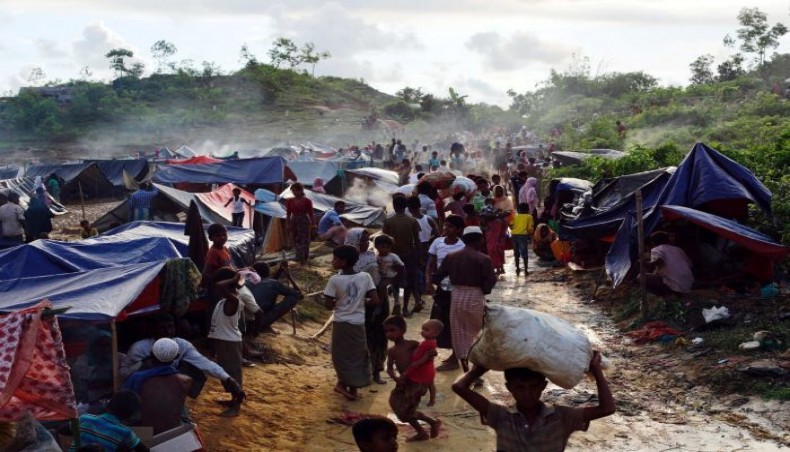UN seeks political solution to Rohingya crisis
United Nations special envoy of the secretary-general on Myanmar Christine Schraner Burgener has said the Rohingya crisis requires a political solution and stressed the importance of accountability for the crimes committed.
During her three-day visit to Bangladesh, she underlined the need for greater international assistance to the refugees and host communities for addressing the harsh conditions they continue to face and also in terms of mitigating the monsoon risks.
Burgener plans to visit New York next week to brief the Security Council and visit Myanmar again in early September.
Following the joint visit of the UN secretary-general and the president of the World Bank to Bangladesh earlier this month, the special envoy discussed the plight of the Rohingya refugees in Cox's Bazar and expressed her sincere appreciation to the government and people of Bangladesh, particularly the host communities, for the efforts to accept and provide assistance to the people seeking refuge from violence.
In Cox's Bazar, she visited the sprawling refugee camps and heard from the people accounts of unimaginable atrocities committed in Rakhine State, said a concluding note of her visit issued on Wednesday.
The special envoy was deeply moved by their personal stories and their strength.
Despite these serious violations of human rights, they expressed to the Envoy their hope to return home if security could be guaranteed and citizenship provided.
In all discussions during the visit, the special envoy also emphasised the importance of accountability for the crimes committed.
Updating the interlocutors on her recent visits to Myanmar and giving importance to the UN principles, including promotion and protection of human rights, the Special Envoy supported the implementation of November 23, 2017Memorandum of Understanding (MoU) between Bangladesh and Myanmar, and June, 2018 MoU between the government of Myanmar, UNHCR and UNDP as important first steps.
She stressed that their implementation should begin as soon as possible along with other measures towards a conducive environment for the voluntary, safe, dignified and sustainable return of the people to their place of origin or choice.
It remains her priority to help address the root causes of the crisis, including through the implementation of the recommendations of the Advisory Commission on Rakhine State, particularly ending restrictions on basic rights such as freedom of movement and resolving the citizenship issue.
‘There's an urgency for all concerned to take concrete measures towards these goals,’ she said.
The special envoy emphasised that the United Nations stood ready to provide relevant experiences and expertise in this regard.
She advised her interlocutors that the Organisation would soon establish her main supporting office in Nay Pyi Taw.
Burgener made her first official visit to Bangladesh from July 14 to 16.
In Dhaka, she met prime minister Sheikh Hasina, director general of the Directorate General of Forces Intelligence, Major General Md Saiful Abedin, foreign secretary Md Shahidul Haque, the diplomatic community, and the UN country team.
In Cox's Bazar, she held discussions with the population in the Kutupalong camp, Refugee Relief and Repatriation Commissioner Mohammad Abul Kalam, and Senior Coordinator Sumbul Rizvi and the members of the Inter Sector Coordination Group.
She said she is grateful for the work of the humanitarian agencies and non-governmental organisations in this challenging environment.
News Courtesy: www.newagebd.net











